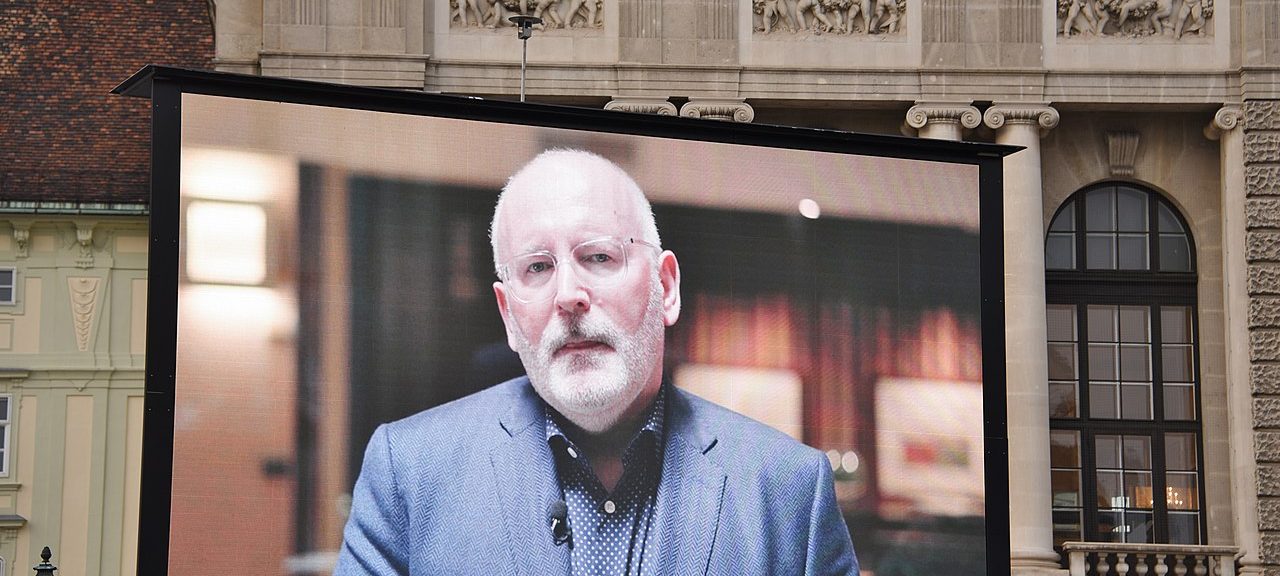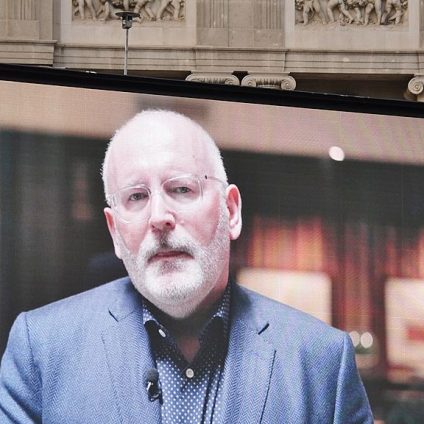An investigation by a Dutch newspaper has sparked criticism against former EU Commission Vice President Frans Timmermans, responsible for overseeing the Green Deal. But Brussels clarifies: there’s no scandal—just a plan to revise the rules for specific EU fund allocations.

Was It “Inappropriate” to Fund Environmental NGOs?
Did the EU act “inappropriately” by funding environmental NGOs to promote Green Deal policies, as suggested by the new EU Budget Commissioner, Piotr Serafin? Or is it not only acceptable but also beneficial for Brussels to support NGOs in balancing the overwhelming influence of multinational corporations and fostering a more equitable debate, as argued by former EU Commission Vice President Frans Timmermans?
What’s the real scope of the so-called scandal involving environmental lobbies raised by the Dutch newspaper De Telegraaf?
De Telegraaf’s “Revelations” on Environmental Lobbying
The controversy stems from De Telegraaf’s investigation, which is known for populist rhetoric and sensationalist stories. This latest exposé on environmental lobbying is no exception. But what exactly are the allegations?
The headline claims a “scandal,” alleging that Brussels secretly funded dozens of environmental organizations to engage in lobbying—reaching out to policymakers and promoting Green Deal policies spearheaded by Timmermans. The report also mentions “confidential contracts” that purportedly outline specific objectives, such as the number of policymakers to contact, to influence debates on agriculture and initiatives like the Nature Restoration Law.
Are Life Program Funds “Inappropriate”?
Framed this way, the story suggests the European Commission entered into covert agreements with NGOs to secretly advance Green Deal policies. However, according to available information, the reality is far less dramatic. Even Commissioner Serafin, who has been critical of these NGOs and Timmermans, confirmed this during remarks to the European Parliament.
The funding in question comes from the EU’s Life Program, which supports ecological organizations participating in public calls for proposals. Like all Life grants, applicants were required to outline actions and measurable outcomes to disseminate project results effectively. These funds, awarded through transparent and codified procedures, are dedicated to environmental preservation and, under the Green Deal, aligned with the EU’s transition strategy under the Von der Leyen Commission.
“The Life Program funds support nonprofit entities that help implement EU policies, as determined by the European Parliament and the EU Council,” Serafin explained, adding that it was “inappropriate for certain Commission services to sign agreements obligating NGOs to lobby members of the European Parliament.”
The Anti-NGO Crusade
Despite these clarifications, De Telegraaf’s investigation has become a rallying cry for anti-NGO campaigns and fresh attacks on the EU’s Green Deal policies. Political parties and associations that have long opposed Brussels’ environmental agenda—and its key figure, Frans Timmermans—are now seizing the opportunity.
“An outrage, a scandal, and illegality!” exclaimed Procaccini of the ECR group in Italy’s far-right Fratelli d’Italia party. The agricultural organization Coldiretti demanded “transparency” and accused Brussels of using these funds to “criminalize” farmers. Meanwhile, Italy’s Lega party claimed on social media that the EU was “handing out” money to environmental lobbies to “impose the green agenda.”
These critics often ignore the European Commission’s additional clarifications. EU officials reiterated that funding NGOs aligned with Green Deal goals is not problematic. What Brussels seeks to avoid, they said, is the use of EU funds for lobbying directed specifically at EU officials and members of the European Parliament in a highly targeted manner.
“There’s no issue with the Commission providing EU funds to eligible NGOs,” a spokesperson for Serafin clarified. “This has always been done, more or less, and it’s something we aim to continue. What we are reviewing is how this is done, and what we want to avoid—something Commissioner Serafin has made extremely clear—is providing funding to NGOs that use it specifically to lobby certain Commission staff and members of the European Parliament in a highly targeted way. This is the practice we want to eliminate.”
Rule Changes Were Already Underway
The adjustments to EU funding practices, it turns out, are not new. The Commission had already revised its rules in November 2024, not just for the Life Program but for all EU funding programs. These new guidelines specify that funds cannot be used for lobbying or advocacy targeting specific institutional actors. The matter is also under review by the European Court of Auditors, with a report expected by mid-2025.
Meanwhile, the European Environmental Bureau (EEB)—a network of over 180 European NGOs implicated in the investigation—has firmly rejected the allegations. “The fundamental errors in reporting on NGO funding, combined with attempts to fabricate a false scandal, lead us to view this attack on civil society as far more sinister than it appears,” the organization stated in a press release on January 23.












